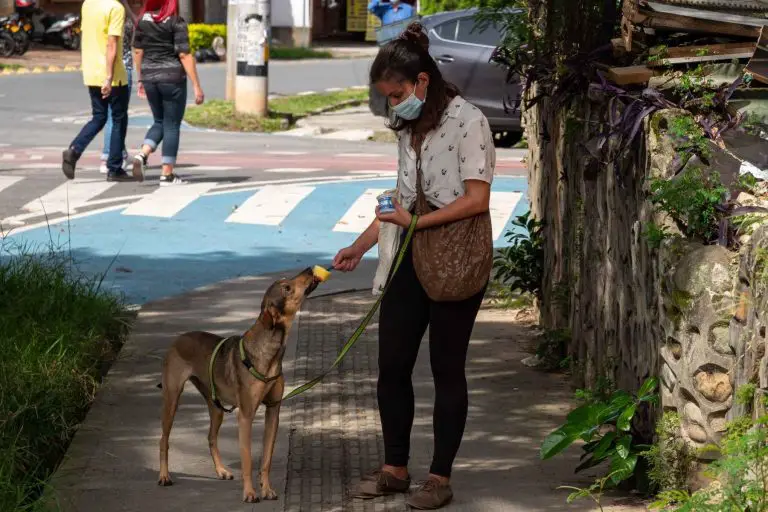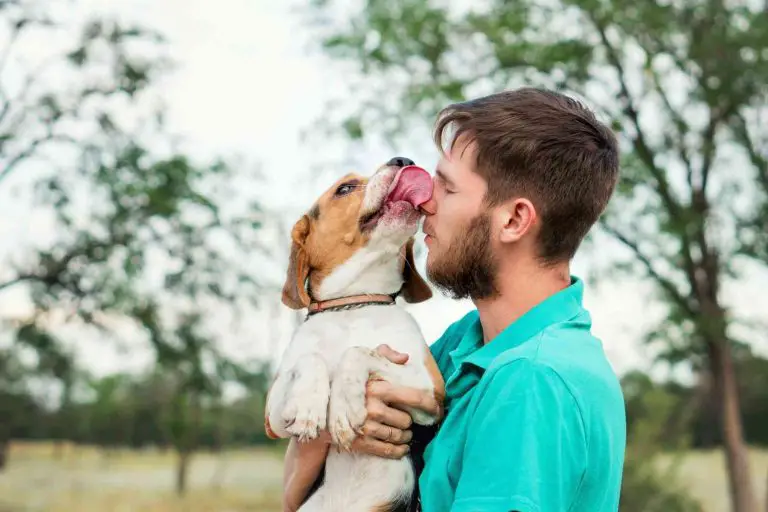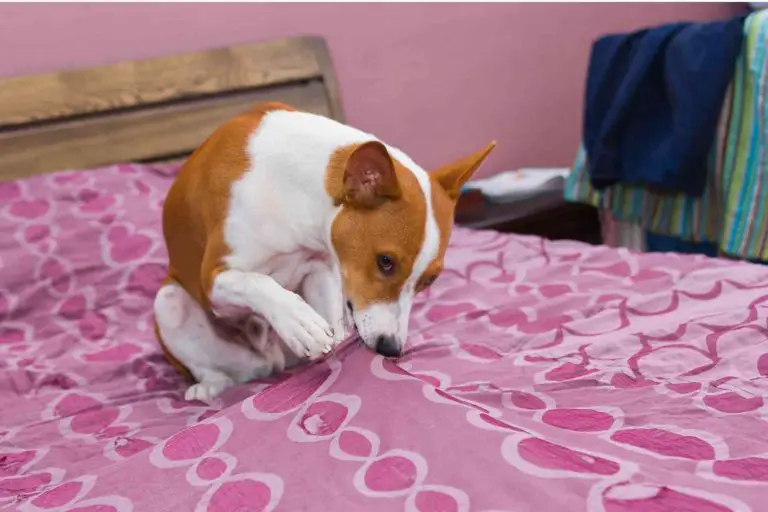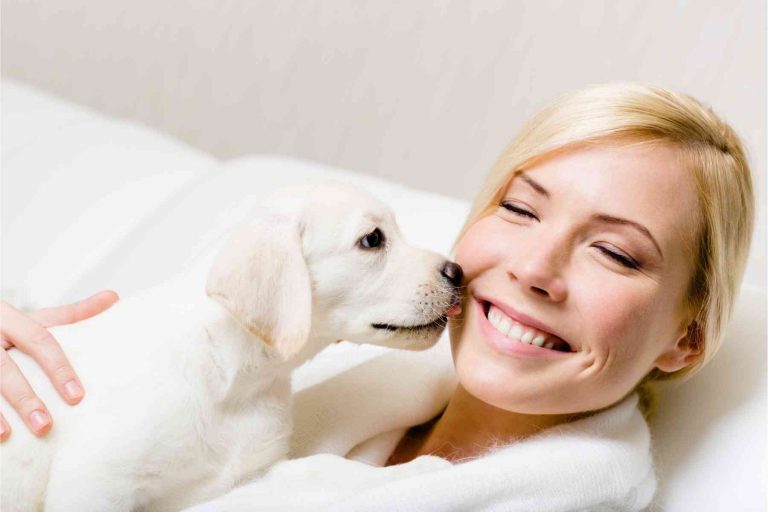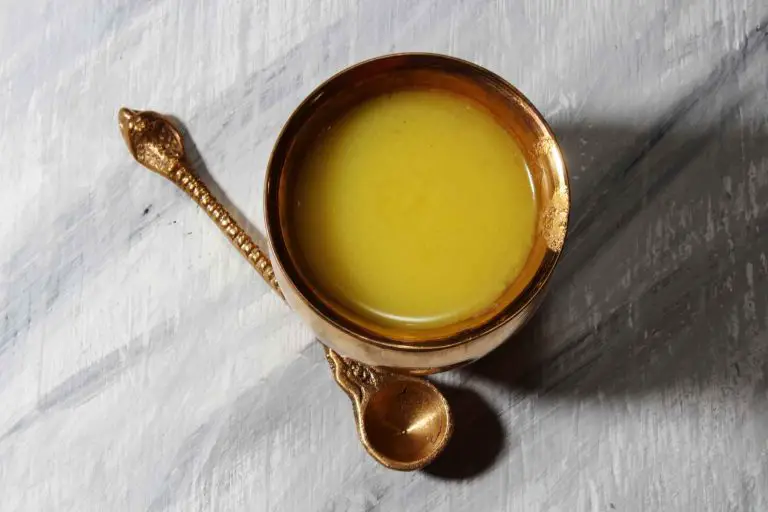How Long is a Dog a Puppy?
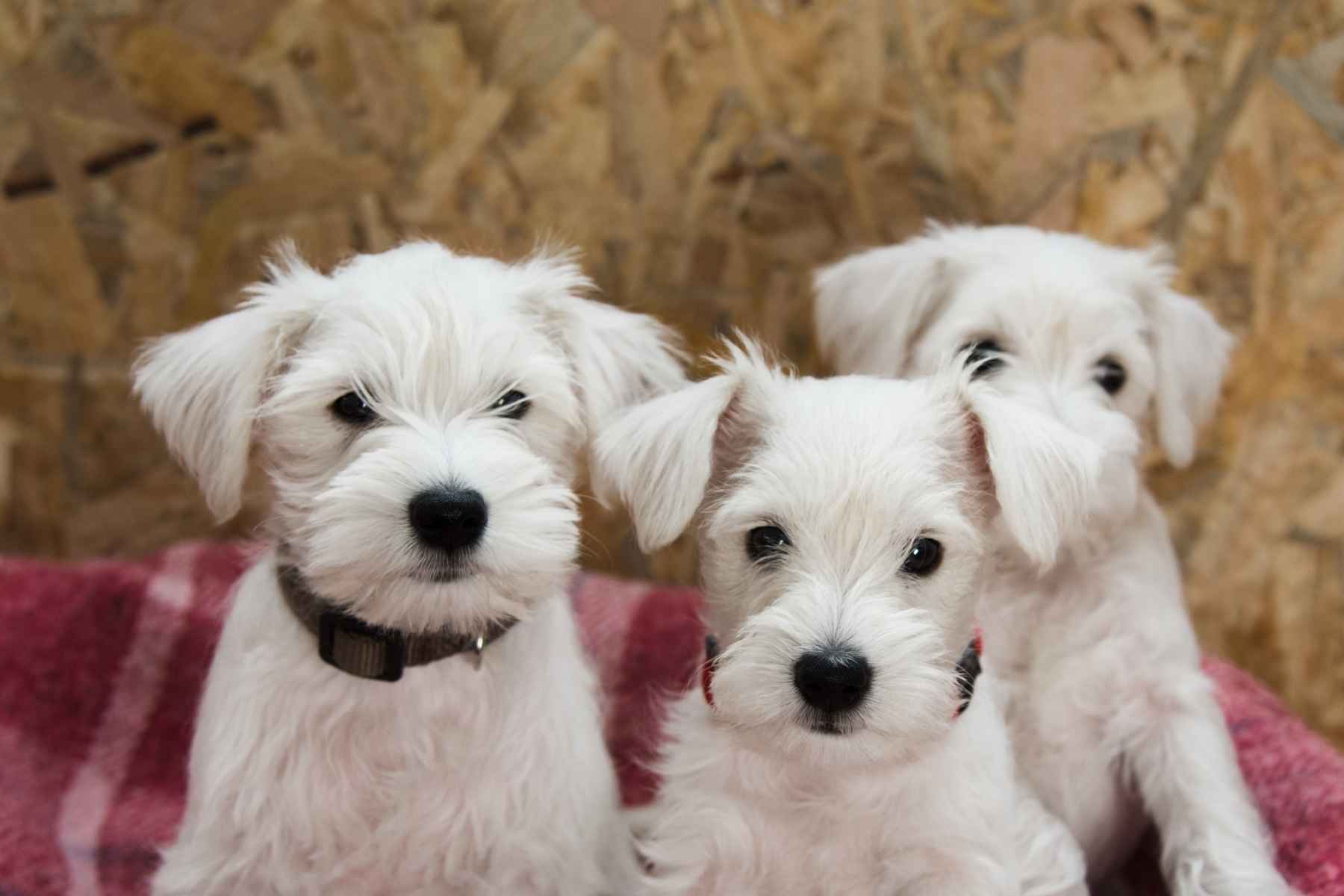
I have to admit; I was delighted to be able to write this article as I am the proud owner of a new puppy myself! So what better way to educate all of you on how long the puppy stage is.
While most of us picture an eight-week-old ball of fur when we think of a puppy, the puppy stage actually lasts until about age two!
In this article, I will go over each stage of puppyhood in detail and give you an idea of what you can expect when you take home that new four-legged friend.
How Long is a Dog a Puppy?
The actual puppy stage is about two years, but a lot happens in such a short time.
Puppies grow and change at such a fast rate that it can be hard to keep up with. With each passing stage of puppyhood, you must ensure that your puppy’s needs are met.
During the puppy stage, you will be building a solid foundation for the kind of adult dog your puppy will be.
The Newborn
Puppies are at their most vulnerable as soon as they enter the big wide world. They have only the senses of taste and touch and rely on mom for everything.
One of the most important things right now is staying warm so new puppies will stay as close to mom and the littermates as they can.
Your puppy will also gain weight rapidly during the first week, doubling in size! Mom’s milk will give them the strength they need to grow, and you may even see them trying to move around more during the second week.
Weeks Two to Four
Your puppy’s eyes will begin to open, and they will interact more with their brothers and sisters. You may notice they are getting good at standing, and you may catch a little tail wag.
Her vision still needs work, and she will learn by following her mom’s example. They may attempt to walk, and they will even find their voices.
So don’t be surprised if you hear a little bark or two. By the end of week three, she will also start to get those sharp little puppy teeth.
Week Four to Six
With those new teeth emerging, your puppy will begin testing her taste buds on some puppy food. She will also start to ween off of mom’s milk over the next few weeks, so she will need access to fresh water at all times.
Mom can leave the puppies for short breaks during this time. She needs a well-deserved break!
Puppies will be interacting with their humans and are completely snuggle-ready at this point. So plenty of affection and petting is called for!
Weeks Six to Eight
Puppies are playful and on the move by this time! They will be learning to go to the bathroom away from their main area, which will be the start of potty training. Mom is a great teacher in this regard.
Puppies can be introduced to the outdoors with close supervision, allowing them to learn more about the world around them.
Puppies will also visit the veterinarian at this point for their first check-up and set of vaccines.
Weeks Eight to Twelve
At eight weeks, puppies are ready to leave mom and their littermates and start a life with their new family.
Puppies thrive on routine, and this is a good time to work on a schedule for feeding, sleeping, and potty time.
At this age, the little bladders of puppies can only go about three to four hours at night before having to go out. Some may make it through the night better than others.
Socialization is also critical at this point, so introduce your puppy to strangers and other well-behaved dogs as long as they are fully vaccinated.
Puppies at this age can also be left alone for short periods of time as long as they are in a puppy-proof area such as a crate or playpen.
Puppies are also teething at this stage, and their teeth are like razors. Use toys and other appropriate play things to redirect any nipping and biting.
Four to Six Months
Continue to socialize your puppy during this time. If she is up to date on vaccines, you can bring her to the dog park but only do so with supervision.
Any negative experiences at a dog park can stick with a puppy who is developing at this age.
Puppies can also begin being brushed or groomed, depending on their coat. Puppy school is also great at this age and will give you a solid foundation for training.
Six to Nine Months
By this time, your puppy is ready to be spayed or neutered if you are not planning on breeding them. Once this procedure is complete, your puppy’s hormones will level out, but it will also be a ball of energy needing daily exercise. Games such as fetch are excellent mental stimulation for puppies this age.
Puppies can develop some bad habits around this time. Things such as chewing and digging can take up your dog’s time if she is feeling bored.
You can extend puppy school or start it if you haven’t already. Look out for any forms of aggression at this stage, and be sure to teach proper social etiquette to your puppy.
Nine to Twelve Months
By nine months, your puppy should have all of its adult teeth and will have graduated when it comes to tearing toys apart. Getting some tougher, more durable toys will work in your favor.
During these last three months, your puppy will be just about full grown. Larger breeds have a little more to go, but the smaller breeds are nearly full grown. By this time, you will have a good idea of what size your dog will be.
You can expand play time to different places or expand on any tricks or obedience training. But remember, these are still puppies even though they may look bigger. They will still be goofy and playful but also have more confidence with their increased size.
Your One-Year-Old Puppy
It’s quite an achievement for your puppy. She has been through a lot of growing and changing in the first year of her life. The worse of puppyhood is likely done, as well as those funny teenage years (or months in this case).
When it comes to maturity, puppies still have some growing up to do. They will still need consistent training to be sure they don’t forget the rules, so to speak. And they will have unlimited energy and sleep less than a smaller puppy. And of course, now, they are much bigger with all that energy.
Your puppy is full size by now, and her adult coat has fully grown in. Keep up on regular brushing and grooming to keep her coat looking its best. You may notice a lot more shedding, depending on the dog breed.
Your puppy should have her first “big girl” appointment at the veterinarian, where you can be sure all vaccines are up to date, as well as any flea and ticket medicine they may need. You can slowly begin transitioning your puppy to adult dog food with your vet’s approval.
Continuing to socialize your dog through visits to parks, stores, and friends’ homes is important. Let your dog meet new people and other dogs to keep them prepared for anything they may encounter later in life.
Twelve to Eighteen Months
During this time, your puppy will fully reach her emotional maturity. Smaller dogs will seem to reach this quicker than bigger dogs. However, they will still act like puppies for another six months or so!
This can be a tricky time, too, as emotional maturity mixes with physical maturity. You will have a lot on your hands! Be sure to assert yourself and keep up with that training.
Two Years Old
Welcome to adulthood! The two-year-old puppy is sort of like the kid that turned eighteen. It’s that magical time when your puppy is finally a young adult.
Your puppy is fully mature both physically and mentally but will no longer act like a puppy. But that doesn’t mean it isn’t still youthful.
Your two-year-old puppy has all her adult teeth and a full adult coat. She also won’t need as much food as she did growing up.
A two-year-old puppy should be housetrained at this point and consistent in the times she needs to go. She is less likely to chew up everything in sight, including shoes and electric cords. But she will likely be more than engaged in any games of fetch or frisbee.
From two years on, you can truly appreciate your dog without the added stress of the puppy years and begin to develop a long and healthy relationship.

